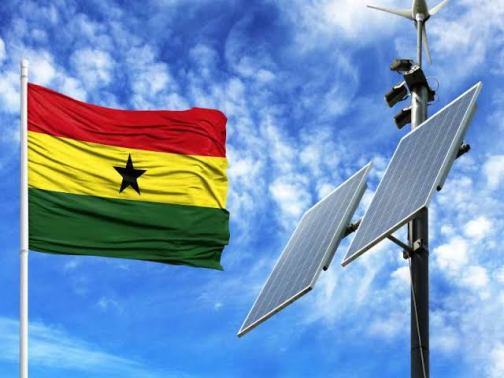
Ghana’s Deputy Minister of Energy, Mr. Andrew Mercer, has unveiled a visionary plan to use renewable energy sources to bring electricity to rural and underserved areas. This announcement came during the Nigeria Energy Exhibition and Conference in Lagos, themed ‘Unlocking new value with reforms, investments, and technology,’ organized by Informa Markets. The conference revolved around the West African energy landscape, inter-regional electricity connections, and Ghana’s electrification endeavors.
Mercer disclosed Ghana’s ambitious goal to achieve universal energy access by 2024, an impressive feat considering the current electrification rate stands at 88 percent. He articulated the government’s commitment to electrify 200 islands and 2,000 lakeside communities, benefitting 1.5 million people. These remote areas will harness decentralized renewable energy resources, with five operational mini-grids currently supplying power to 10,000 people and three more under construction poised to serve 6,000 when completed.
In emphasizing Ghana’s faith in renewable energy integration, Mercer underscored the importance of reducing fossil fuel dependence to combat climate change and mitigate the impacts associated with large-scale hydro projects. Traditionally reliant on hydro and thermal power generation, Ghana faces challenges due to depleting hydro resources, geopolitical tensions, and fuel availability issues, which affect its energy security. Mercer stressed the necessity of diversifying the energy mix to overcome these hurdles.
Furthermore, Mercer highlighted Ghana’s holistic approach to address the trilemma of energy security, energy equity, and environmental sustainability. The country has transitioned from viewing these three facets as separate paths to recognizing them as interconnected destinations that must be simultaneously reached.
Ade Yesufu, the Exhibition Director of Nigeria Energy, lauded Nigeria’s enactment of the Electricity Act 2023 as a positive step for the nation. He emphasized that the Nigeria Energy Exhibition and Conference served as a crucial platform where local players and international investors could collaborate to address industry challenges and devise solutions.
In conclusion, Ghana’s commitment to extending electricity access to remote communities through renewable energy sources is a significant stride towards enhancing energy equity and sustainability in the West African region. This forward-thinking approach aligns with global efforts to reduce reliance on fossil fuels and combat climate change, ultimately driving progress in the energy sector across the continent.


